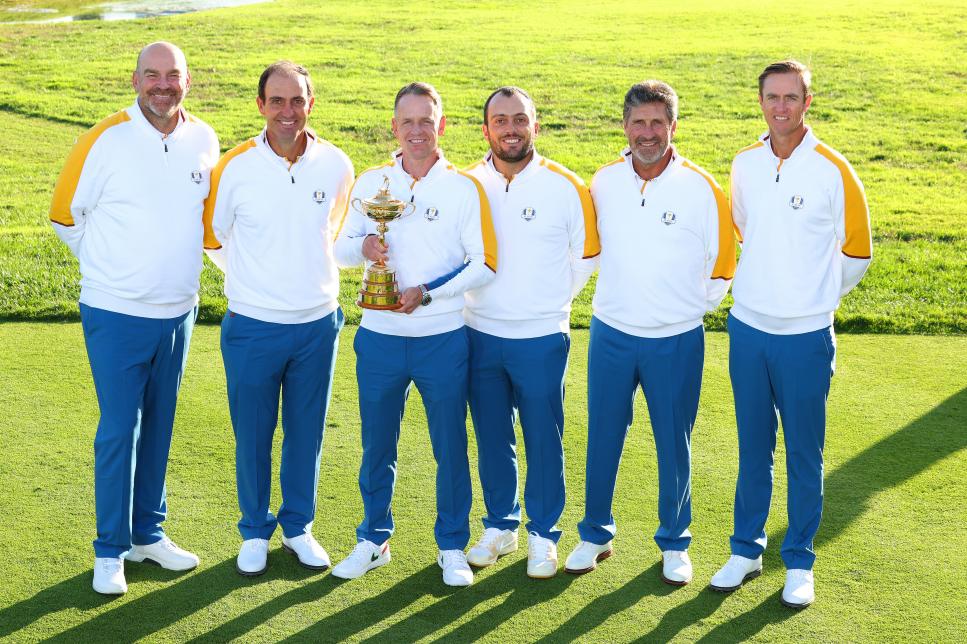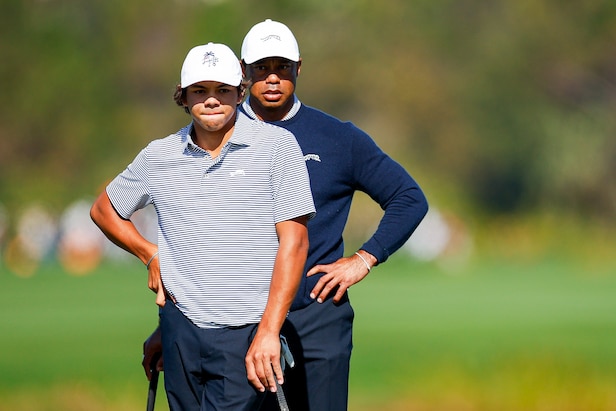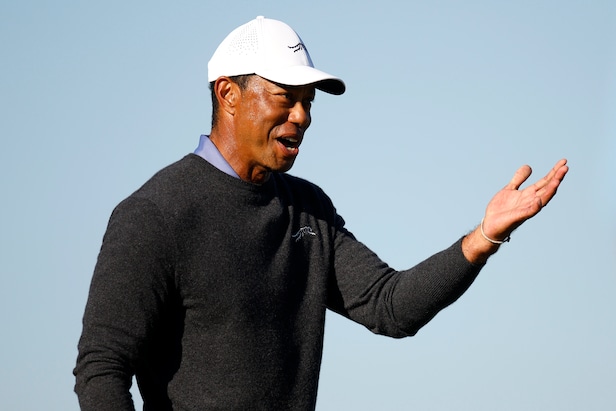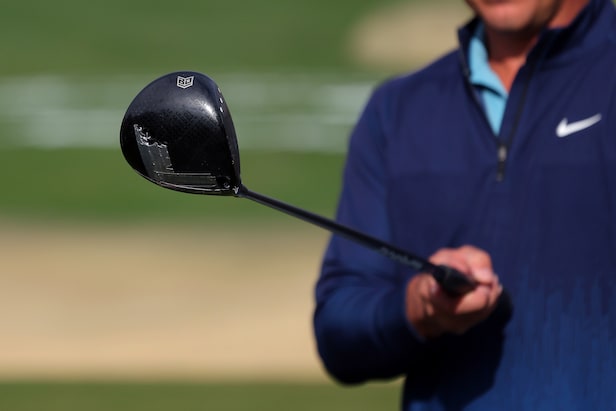New documentary ‘Una Famiglia’ offers glimpse inside the 2023 European Ryder Cup team but leaves junkies wanting more – Australian Golf Digest

- by Admin
- December 4, 2024

There was a point, while covering this fall’s Presidents Cup, when I almost stopped going to the press conferences of captains Jim Furyk and Mike Weir. I’m sure it would have broken their hearts. Duty compelled me to shelve the idea, but the whole process had become fruitless. In short, they weren’t saying a damn thing, and I kept having exchanges like the following:
Q: What were some of the big moments either yesterday or this morning, no matter who said them, that kind of kept your spirits up? I heard something that Mackenzie Hughes might have given a speech on the bus ride over today.
MIKE WEIR: I don’t think there’s any like one moment or one or two moments. I think it’s collective. We’re all in this together. We all had a great belief. … They knew we were right in the matches. Like it went our way today, it went their way yesterday. That’s golf as we know. I wouldn’t say there’s any one moment. They’re just so bonded. The guys are saying things and us captains are as well.
“The guys are saying things and us captains are as well.”
Gee, thanks. I’m trying not to pick on Weir here, because he’s only following a trend, and it’s a trend that also applies to the Ryder Cup and all its recent captains: nobody’s saying anything specific. Nobody! There’s such an incredible culture of secrecy around strategy, statistics and the dynamics of the team room that, along with the reduced media access at these events, it becomes hard to tell a story. (I know, I know, you feel just awful for the golf journalist. But the lack of a good story contributes to the corporate, anodyne miasma overtaking modern sport—you’re going to miss us when we’re gone.) It comes to a point where you just want to shout at them: Just tell me what one &^%%ing person said on the team bus! I’m not asking for your social security number!
Think of the big juicy nuggets from the last few Ryder Cups—the Rory/LaCava/Bones melee, the Cantlay hat saga, the wrong-ball blunder by Harrington at Whistling Straits, whatever happened with DJ and Brooks in Paris—and it’s all from emotional public flare-ups or leaks. I guarantee you there are good stories happening on a positive front, but they’re lost in a culture of silence. The Ryder Cup captain as a totemic figure has gone from a colorful raconteur to a desaturated CEO; Paul McGinley is not walking through that door. And it’s frustrating because the history of the Ryder Cup is a history of these triumphs, and golf should not be the CIA. It shouldn’t even be the NFL. I don’t want the state secrets, but it would be nice to peek behind the curtain a little, even after the fact.
I had hoped that “Una Famiglia,” the documentary from the European Tour Group on Luke Donald’s captaincy at the 2023 Ryder Cup that launched on the Ryder Cup YouTube channel Tuesday and airs on the Golf Channel in the U.S. starting Dec. 10, would be the antidote to that culture. But while it looks gorgeous and it’s a pleasant 90-minute watch, particularly if you’re a Ryder Cup fan, it’s also the answer to an unfortunate question: “What happens if you make a ‘behind-the-scenes’ documentary while adhering to the modern ethos of keeping every card close to your chest?”
The answer is that it produces some interesting results, and not all of them negative. For one thing, I enjoyed spending the time with Luke Donald, the centerpiece of the documentary who made himself and his wife Diane available-ish for the months leading up to the event. (The best scene in the entire film is an incredibly relatable exchange in their kitchen where both are talking over each other, neither willing to give up the floor, until Diane inevitably wins the battle of wills and an exasperated Luke drops his head to the kitchen counter in defeat.) To the extent that the film offers a glimpse into Donald’s personality, it succeeds; the Englishman, thrust into the captain’s role after Henrik Stenson was dropped for jumping to LIV, is quiet, contemplative, almost mysterious in his restraint, like the Tom Hiddleston character Jonathan Pine in “The Night Manager.” Part of the allure is that you recognize his great ability as a captain and sense his empathic qualities while still never quite knowing what makes him tick. Even without being told that he inspired confidence among his players—and we are told, about a thousand times—his appeal in the role would be obvious. I’ve long thought making the man who turns 47 on Dec. 7 a repeat captain at Bethpage was the smartest move by either team in years, and I came away fortified in that belief.
ROME, ITALY – OCTOBER 02: The captain of the European Ryder Cup team, Luke Donald reading the morning newspapers at the Cavalieri Hilton on October 02, 2023 in Rome, Italy. (Photo by Andrew Redington/Getty Images)
Andrew Redington
It also looks gorgeous. The European Tour Group, in collaboration with IMG Studios, hired Jim Williams as director, and his film has a lovely gray undertone, a quietly propulsive soundtrack, and an organic-yet-urgent rhythm to the storytelling that made the 90 minutes pass quickly. Off the top of my head, I can’t think of another sports documentary that looked this good, and compared to a more earthy, in-your-face production like “Full Swing,” there’s a welcome elegance at play here. Even shots that might look cliché in lesser hands, like Donald walking out onto a pier at sunrise, have a poignancy in Williams’ capable hands. It also feels worthwhile to mention that it never comes off as propagandistic or advertorial, a serious potential pitfall for these types of films.
And yet, the substance—the actual story—will leave you wanting. Or it left me wanting, anyway. If challenged to write this review in three words, I would have gone with, “told, didn’t show.” But even that’s a little reductive, because I would have loved a good juicy telling. Sadly, even the stuff they tell you always feels like a pulled punch. To take a small example, here’s the full 90-second audio of Donald introducing his vice captains, which seemed so egregiously hollow to me that I transcribed it. A Guy Kinnings quotes is mixed in here:
“I was very happy having Thomas Bjorn and Edoardo Molinari as vice captains. …Thomas’ experience as captain and Edoardo’s knowledge in Italy and with a lot of the players, and they’ve already been working hard on things and I think that’s a fantastic statement. … Those two were very helpful in certain decisions. Nico [Colsaerts] was the next one. I felt like he understood what Ryder Cups were all about, and Nico certainly has that passion. I’d have loved to have Francesco playing on my team. It didn’t quite work out, but I wanted him to be a vice captain with his brother here. And to have Jose’s presence was truly special. There were times where Jose would sit down and talk and you could hear a pin drop because everyone wanted to hear what Jose would say.”
Now, if you’re thinking, “I would love to know what certain decisions Bjorn and Molinari helped make,” or what exactly Colsaerts’ understanding entails, or what Olazabal might have said that had everyone so rapt, join the club. No dice—mum’s the word. (When it comes to Edoardo Molinari, I think as a one-man statistical army he was among the most fascinating personalities in Rome, and it was particularly frustrating to get nothing on him.) They get Olazabal to cry a few times, and I’ll get goosebumps as quick as the next man with any reference to Seve, but I found myself willing to commit a major felony for just one good chewable story. The vice captains are a trivial example, but it gets worse with the big stuff; for instance, not only do you get nothing new on the Rory-LaCava spat, but you actually get far less than ever before. “Full Swing,” for all its lack of sophistication, at least threw us in the mix.

Luke Donald with this assistant captain’s in Rome: Thomas Bjorn, Edoardo Molinari, Francesco Molinari, Jose Maria Olazabal and Nicolas Colsaerts.
Andrew Redington
Donald was kind enough to make himself available for a chat on the film the day after I watched it. He was gracious and interesting, and when I brought up this complaint, he didn’t shy from the question.
“I understand,” he said. “It’s a fine balancing act, I’ll give you that…I’ve watched many documentaries on Netflix. I watched “Starting Five” about LeBron [James] and some of the basketball players, and I left it just thinking, well, I’m not really seeing the inside. I don’t know why Lebron’s great. We’re just following him around in his house. But I feel like this one, we do give you a little bit of insight.”
I’m not sure I fully agree. According to Donald, the main theme, and his main triumph, is the cohesion he and his team created in a tough situation after all the LIV defections, and it’s emphatically true—what Donald accomplished in Rome was remarkable. It’s also true that they hammered this point home, repeatedly. But they hammered it home in the broadest sound bites, via talking heads and a treacle of match footage. They also hinted at the ominous atmosphere to come at Bethpage next year. What they didn’t do was show much of anything. Isn’t a documentary, particularly one with this kind of access, supposed to put you in the middle of the fray? Why are we rarely in the locker room, or in the captain’s war room? Why don’t we get more, even secondhand, about his toughest choices, like leaving Adrian Meronk off the team?
The answer is, secrecy. Donald isn’t alone in wanting to keep his strategy and the inner workings of the team close to the vest, presumably to protect his tactics and his players’ privacy. Europe isn’t alone in that impulse, either. But it’s a goal that is set in defiant opposition to storytelling, and leaves you with precious few tools beyond vagueness and platitudes. To the extent that “Una Famiglia” succeeds, it’s a matter of production and personality. Where it falls short, it’s a matter of caution, and everything left unsaid.
This article was originally published on golfdigest.com
The Latest News
-
December 22, 2024The remarkable Lleyton Hewitt feat Cruz Hewitt can emulate after being handed 2025 Australian Open wildcard
-
December 22, 2024Forgotten man removes himself from Test talk
-
December 22, 2024Tiger Woods’ son Charlie makes a hole-in-one in the final round of the PNC Championship – Australian Golf Digest
-
December 22, 2024Tennis’ love match: Meet ‘Aussie’ Matteo Arnaldi and his Melburnian girlfriend
-
December 22, 2024GEORGIE PARKER: McSweeney was McStiff to get axed





